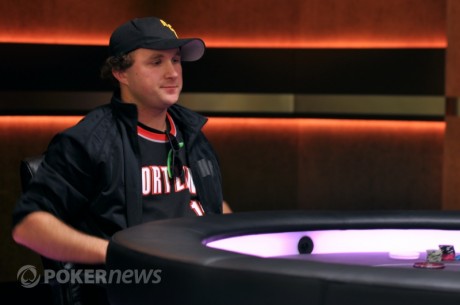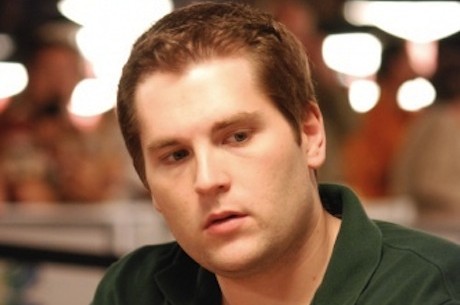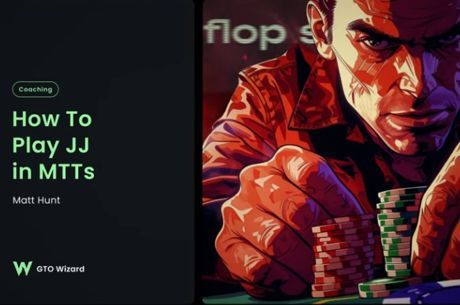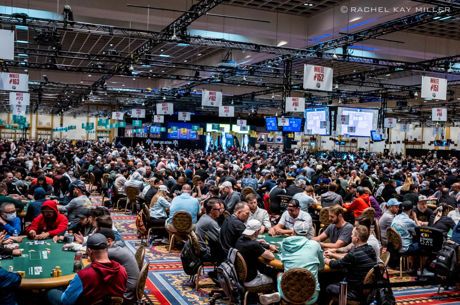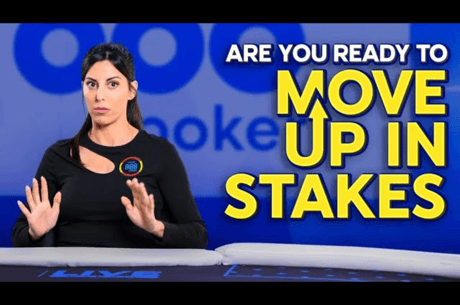Strategy with Kristy: Jared Tendler on the Mental Game of Poker Part 2

Jared Tendler is the author of The Mental Game of Poker and has coached more than 200 players from around the world. Equipped with a masters degree in psychology and years of experience as a performance coach, Tendler has become one of poker's most respected teachers of the mental side of poker, which includes tilt, emotional control, confidence, motivation, and fear.
Last week on Strategy with Kristy, brought to you by South Point, Tendler came on the show and discussed how to approach improving your mental game, the Adult Learning Model, and more. This week, host Kristy Arnett put into practice a few tips she learned from Tendler and discusses her experience.
Here is a snippet from the interview:
Personally, I feel like my confidence changes so much. Sometimes I feel unstoppable and other times I feel like I can't do anything right. Can you talk a little bit about confidence and the importance of finding middle ground with it?
Confidence is huge. The key thing to keep in mind with confidence is that we're looking for it to be stable, meaning that it doesn't swing too high or too low. Those times when you feel unstoppable are almost not as real as the times when you feel like nothing can go right. Neither one is accurate.
When you feel unstoppable, some players feel like they can beat anybody like the Iveys or the Durrrrs of the world, but that's not true. It's an illusion, but it feels that way. In that moment, being carried away by that emotion can be very destructive on the high side. And the same thing on the other side. When a skilled player like yourself, who's a proven winning player, feels like they can't doing anything right, that's as much of an illusion as feeling like you can beat anyone and you're unstoppable. What we're trying to do is move you more toward the middle, and the middle is not being numb.
This is key because like I said last week, emotion is not the problem. Being neutral and being robotic is not what we're looking for. We're looking for your confidence to be much more focused around the things that you control because in the short run in poker, you can very easily have your results fueled by variance in one way or the other. If your emotions and confidence goes along with it, it will be a roller coaster of emotion along with the roller coaster of your results. That means your confidence is perfectly tied to results.
What we're trying to do is create it much more around your skill. Focus your evaluation of your game, not around how much money you won or lost in a single day, but instead on your skill. You have to be able to recognize how well you played or how poorly you played, specifically what mistakes were made, specifically what difficult spots you got yourself into that you made good decisions for. Being able to see the subtle nuances in your game and the subtle nuances in your opponent's game, allow you to kind of tease out the results in a slightly different way than just money.
That's important to maintain that stability because if you're able to know definitively, on a day when you lost five or six buy-ins, that you played as well as you could and that none of your C-game or B-game mistakes showed up, then you can walk away feeling pretty good. I'm not saying you feel good losing money, but you can walk away knowing that on a very difficult day, you were able to withstand those beats, withstand all those difficult hands and spots, and played as well as you could. That's something that creates a lot more stability for confidence in the long run.
Tune in every week for new episodes of Strategy with Kristy, brought to you by South Point. Feel free to send in questions, ideas or suggestions for the podcast to [email protected]. Also remember to follow PokerNews on Twitter for up-to-the-minute news.


